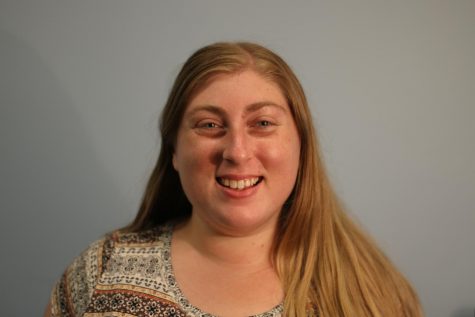SPARC [conversations] sparks speeches of minority experience in STEM
October 28, 2016
SPARC [conversations] will host the first scholarship competition after its second annual TED Talk-style fall conference on Nov. 12. The conference will be from 11 a.m.-2:30 p.m., and the scholarship competition will follow, from 3-4:30 p.m. in the Tinkham Veale University Center.
A young organization, SPARC focuses on talking about important topics with students, faculty and the greater community. This year, the scholarship competition will focus on the experience of minorities within the STEM field and will subdivide into three major competition events with the themes, “Culture of STEM,” “Breaking Out of the Bubble” and “Ideal World.”
Elle Marcus, founder of SPARC [conversations], 2016 alumna and the speaker at this November’s conference, said, “The idea of any competition was never in my vision, but after hearing the [scholarship] idea, I loved it. It’s a great motivator, especially for students that may feel timid about public speaking but want to get out of their comfort zone.”
According to Emma Headley, a fifth-year student and the vice president of scholarships, the scholarships will not be distributed to the student’s academic account, but it is for general student need. “We aim to reward students for sharing their unique point of view on topics: recognizing important issues, raising awareness, starting a conversation,” she said.
Thanks to the company Hyland Software, the sponsor for the scholarship competition’s first event, the winner will receive a $1,000 check made out to them. The top two out of six speakers at each event will move on to the final competition to compete for even more money.
“Lots of computer people love to work for [Hyland]…. I’m not surprised they sponsored,” Headley said. “They will have a recruiter [at the competition] who will be interested in talking to students and an employee will be giving a five minute opening speech to get the event started.”
Headley explained that, since the scholarship portion of SPARC has no track record yet, asking corporations to possibly sponsor events has been a little uncomfortable. But she said it will be worth it after the first competition is professionally recorded and there is a foundation to build on.
Because so many students at Case Western Reserve University are considering entering the STEM field, SPARC [conversations] thought the perfect topic to start their scholarship series would be about what to expect in the STEM field, especially as a minority.
Jennifer Carter, an assistant professor and the first female tenure-track professor in the Department of Materials Science and Engineering, states that her experience has been that “the vast majority of people in the [Materials Science and Engineering] community are completely supportive of the integration of diversity of thought into the field. Most of the community wants to be supportive, and those that are inadvertently unsupportive are often not so out of malice but out of naivety.”
Vice President of Public Relations, third-year student Caroline Gray, brought up the point that, nowadays, there are educational programs such as Diversity 360 and microaggression training that help companies and employers be more accepting of differences in the workplace. But there are still people who have yet to receive that kind of training and are not acclimated to diversity in their workplace.
“There are very sparse rules about what is appropriate and what isn’t,” commented Carter. “There isn’t a single rulebook on how to reach success, and so I get the pleasure (and frustration) of making up my own rules. It is difficult to be yourself sometimes when you feel like you are always being watched as an example.”
This competition is one of many that have a chance to educate an audience interested in what it’s like to be a minority in the workplace. As Headley said, she never leaves a SPARC event without feeling like she’s learned “something completely different or new.”
“You’re 100 percent sure to learn something you never would have thought about,” Headley said.
The positivity surrounding SPARC lends itself to excitement for the topic of minorities in the STEM field to be presented and discussed. Diya Ramanathan, a first-year student speaker at this November’s scholarship competition, said, “I am interested in talking about why individuals from lower-income households are at a disadvantage entering the STEM field because I had an experience at a local Cleveland elementary school where I realized the lack of interest expressed by students from less affluent areas for STEM-related careers.”
Headley said that it seemed like all students interested in presenting at the scholarship competition had unique perspectives when it came to discussing minorities in the STEM field, and choosing speakers was not easy.
For Ramanathan, she thinks her unique perspective is formed “by looking at minorities in an economic context as opposed to considering minorities based on race or gender.”
With regard to advice for minorities interested in pursuing STEM-related careers, Carter suggests, “Find a network of people who can be your champions, mentors and friends who can help you reach your goals. There are barriers to anything worth doing. They are often subtle and difficult to traverse, but if you follow your passion and ‘do you,’ it can all be worth it.”



